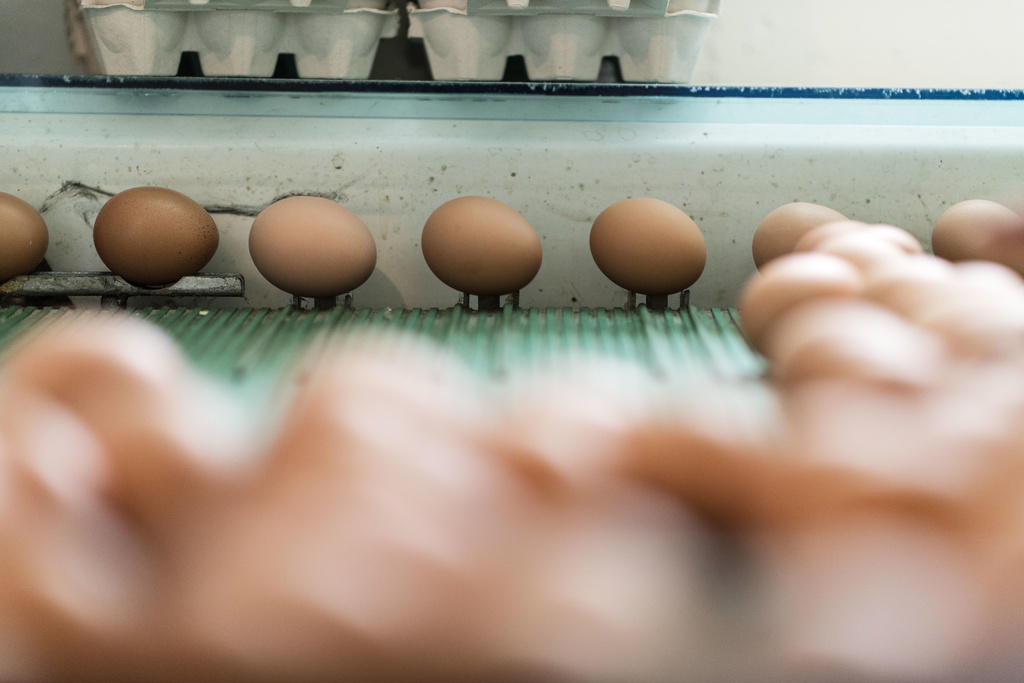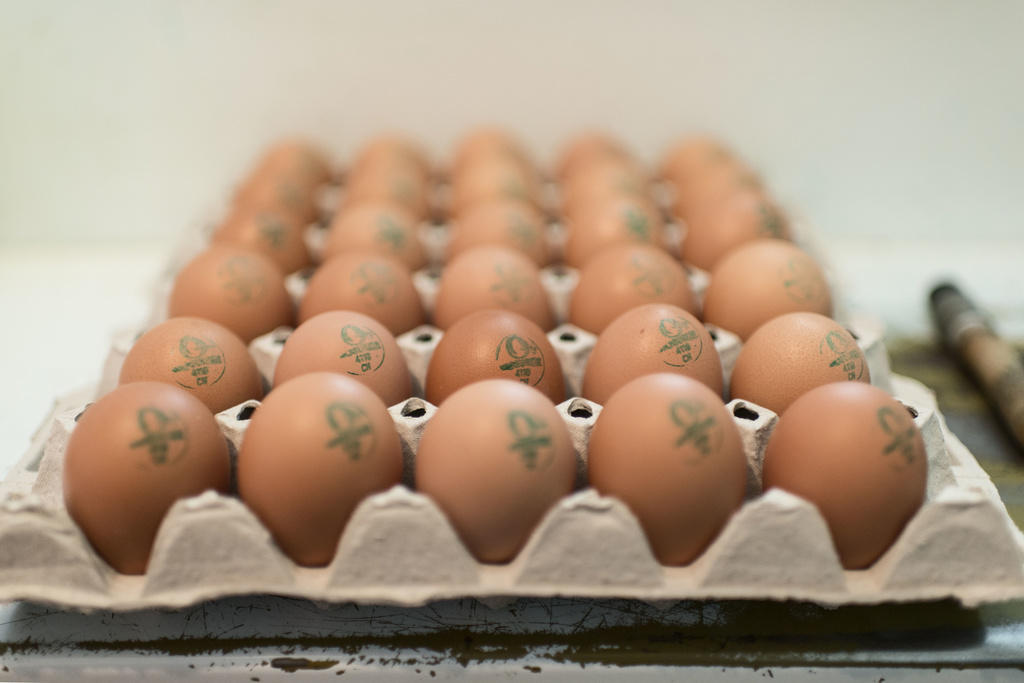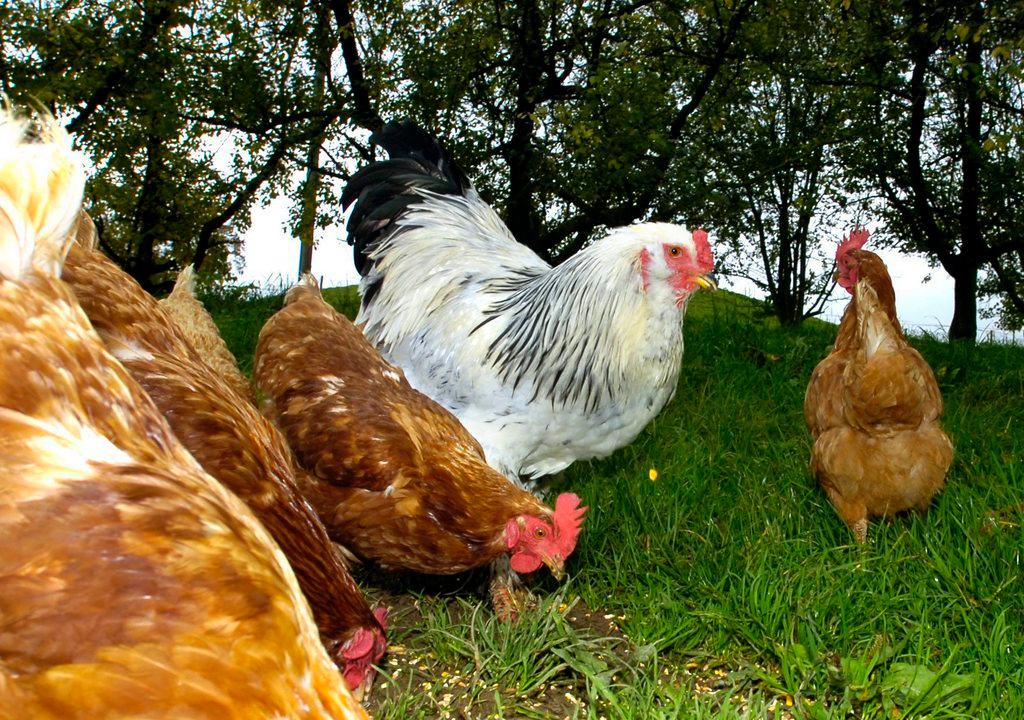Egg production keeps on rising

Although the Swiss are fried, poached and scrambled by their German and Austrian neighbours when it comes to eating eggs, Swiss chickens are no layabouts, with egg output on the up, especially for organic eggs.
Easter is synonymous with eggs, and in many countries far more eggs will be sold in the run-up to Easter than at other times of the year.
But where are the most eggs produced worldwide? The answer, by far, is China. The United States, India and Mexico are also among the largest producers, according to the United Nations’ Food and Agriculture Organization.
In Europe, France leads the way, followed by Ukraine and Spain. France produces 16.6 times more eggs than Switzerland, which is down in 86th place in the international rankings.
Looking at how many eggs are produced in a country relative to the size of the population, the Netherlands comes out on top, with 636 eggs per person in 2017.
Malaysia and Mexico also have a high per capita egg production.
Hong Kong is at the bottom of the ranking, producing only 0.9 eggs per person. Switzerland is somewhere in the middle, at 113 eggs per person.
Overall, 974 million eggs were produced in Switzerland in 2018. Output has been on the rise for years, with organic eggs proving particularly popular; they now account for 17% of all Swiss egg production and 20% of eggs sold in the shops. Fewer eggs are being imported than before.

And how many eggs does the average Swiss eat? 181 per person in 2018 – on average one egg every two days. Egg consumption per capita has gone up slightly over the years, but it’s still way below that of Switzerland’s egg-loving neighbours. The Germans eat 230 eggs per person per year, and the Austrians 239.
In all, 11% of eggs consumed were organic, a figure that continues to increase.

In compliance with the JTI standards
More: SWI swissinfo.ch certified by the Journalism Trust Initiative












You can find an overview of ongoing debates with our journalists here . Please join us!
If you want to start a conversation about a topic raised in this article or want to report factual errors, email us at english@swissinfo.ch.